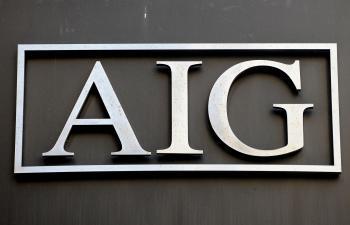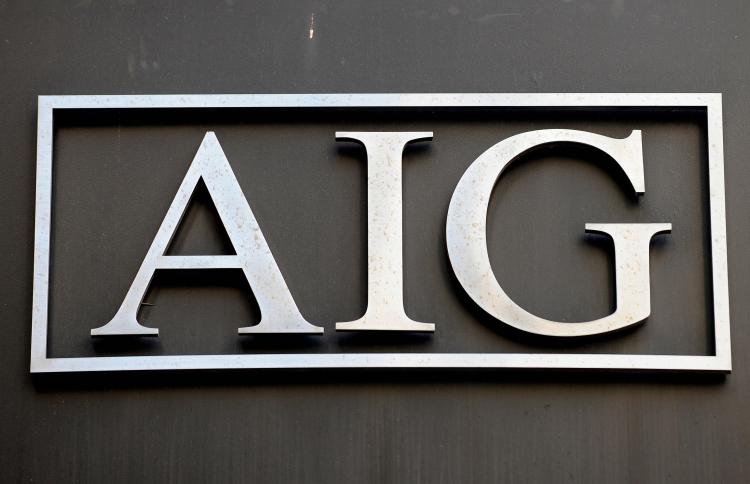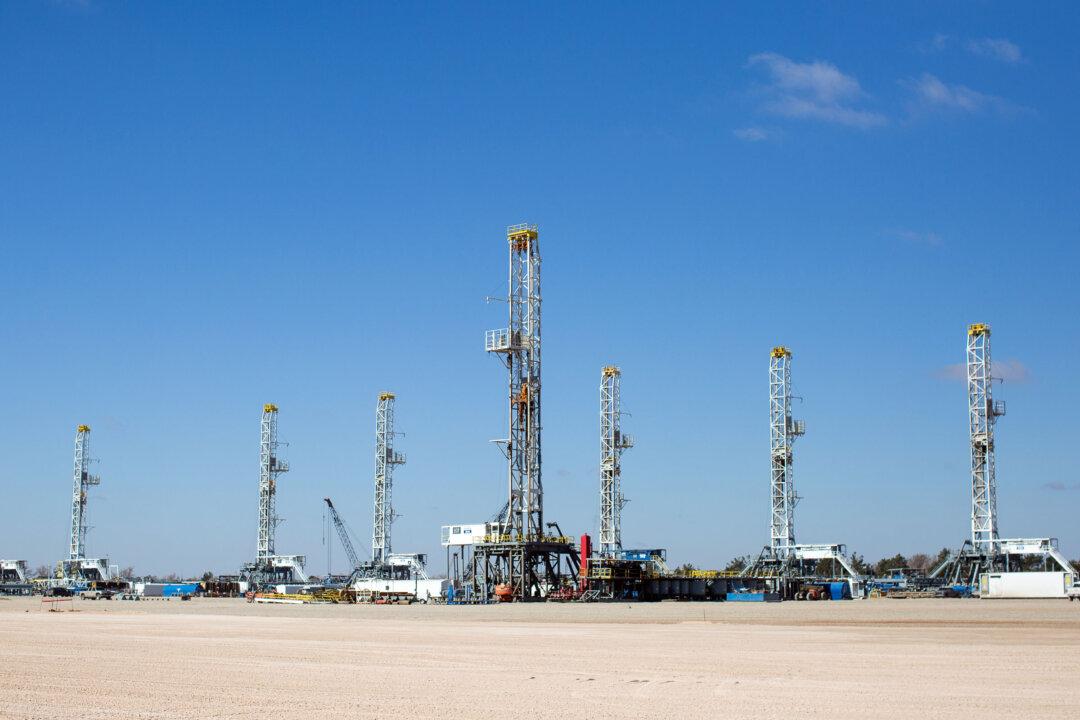AIG Fire Sale Consumes Two More Businesses
When Robert Benmosche took the helm at troubled insurer AIG Inc., he promised to pare down the fire sales.

Logo of troubled insurer American International Group Inc. September 17, 2008 outside their office in the lower Manhattan area of New York. Stan Honda/AFP/Getty Images
|Updated:





